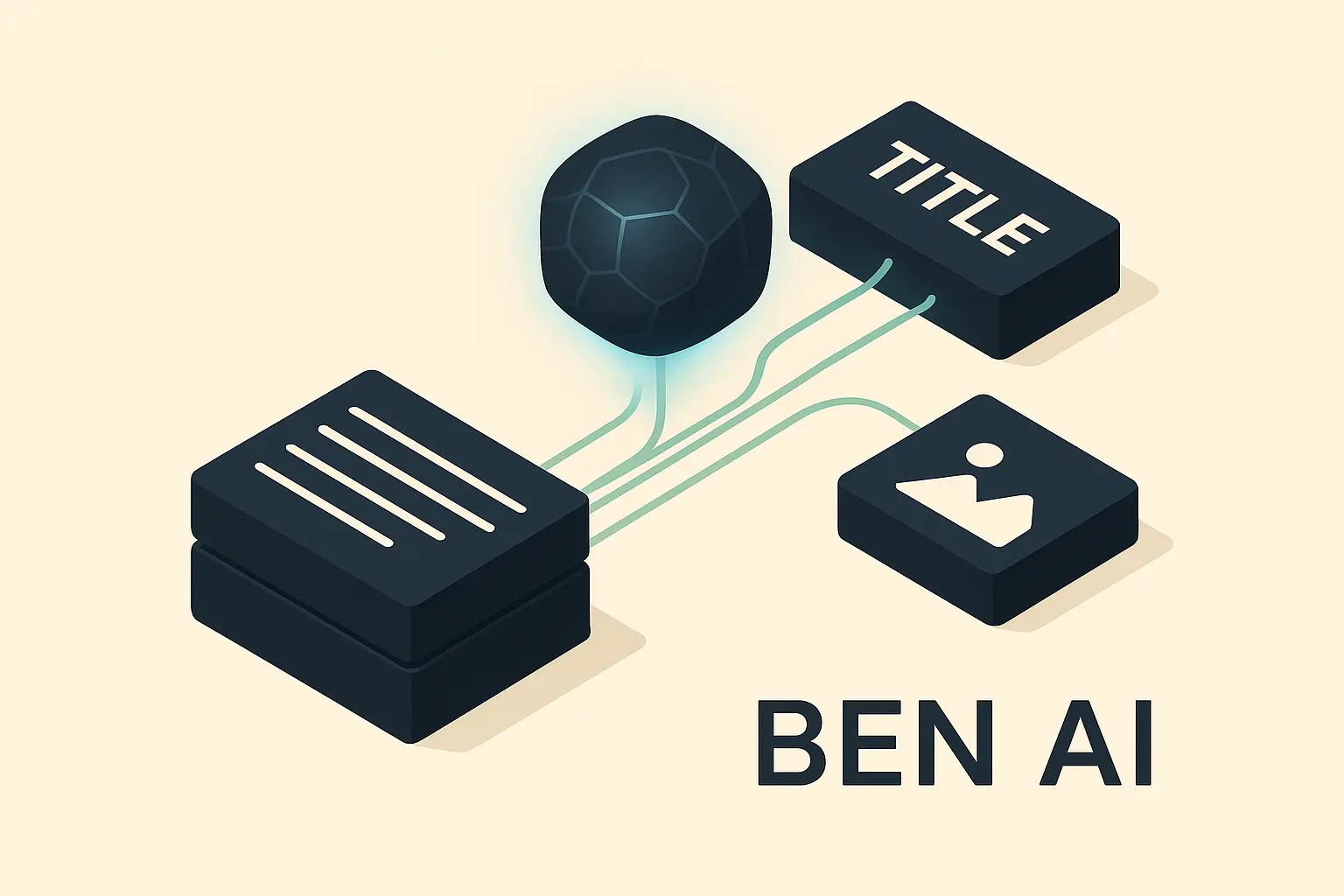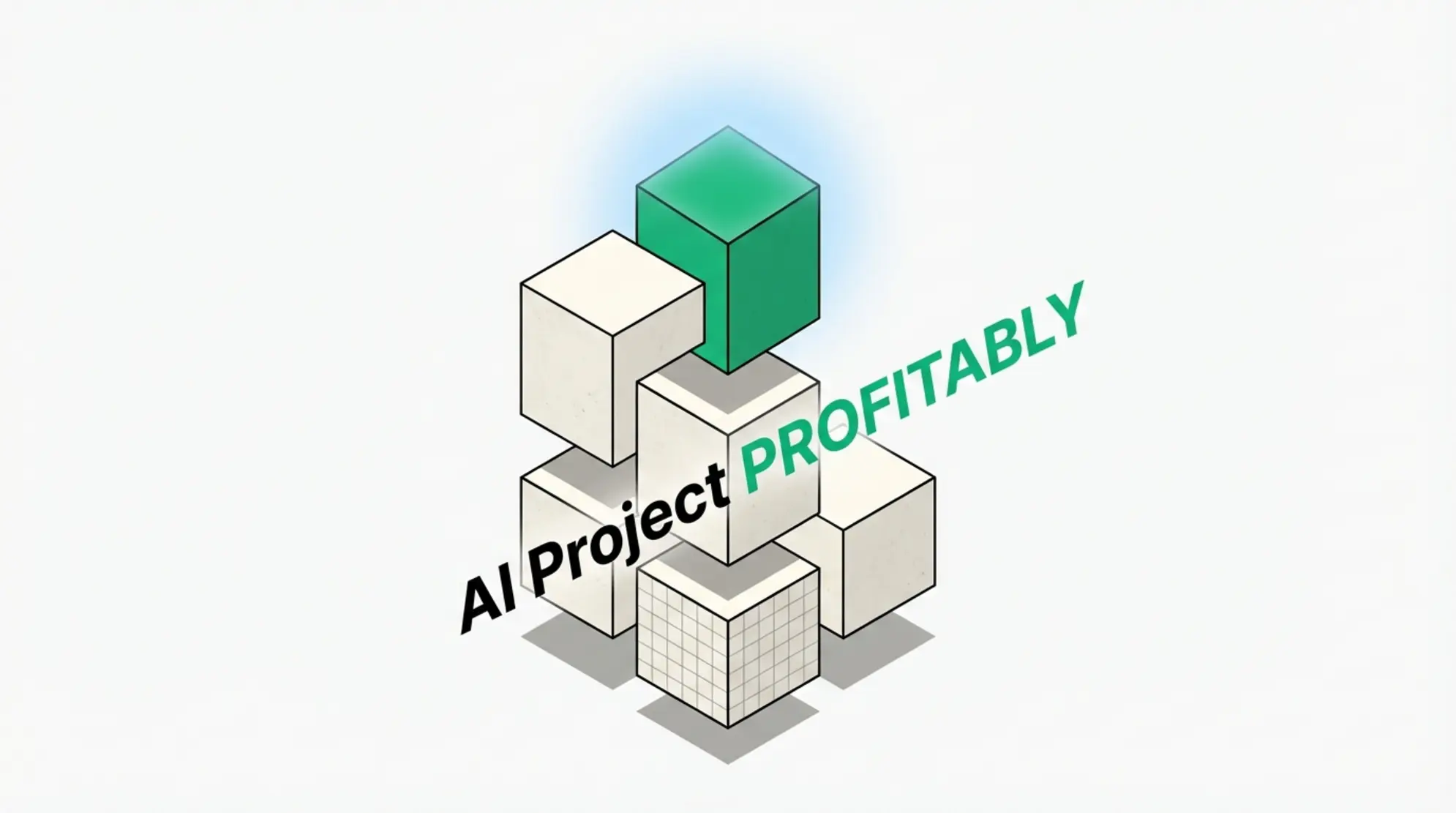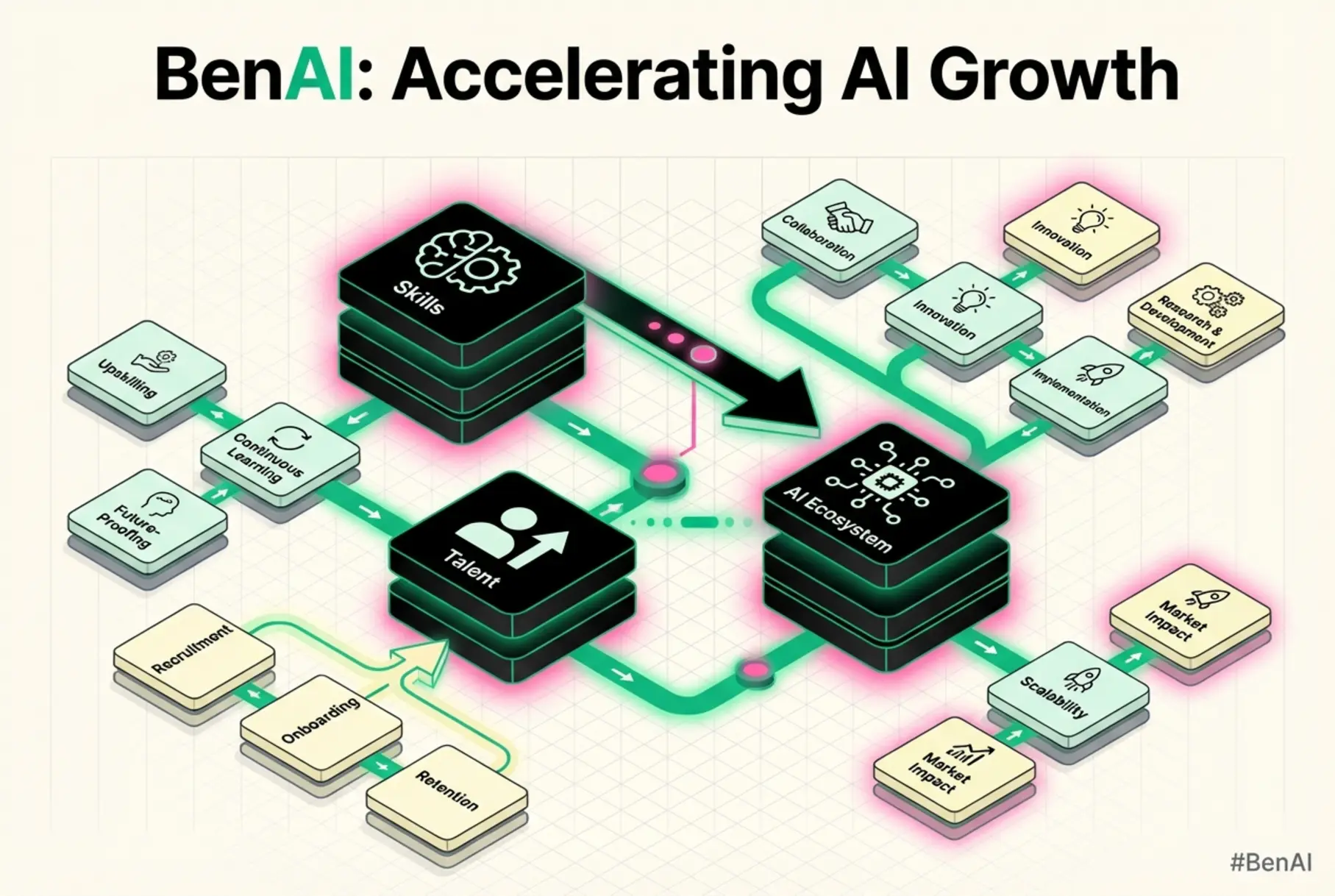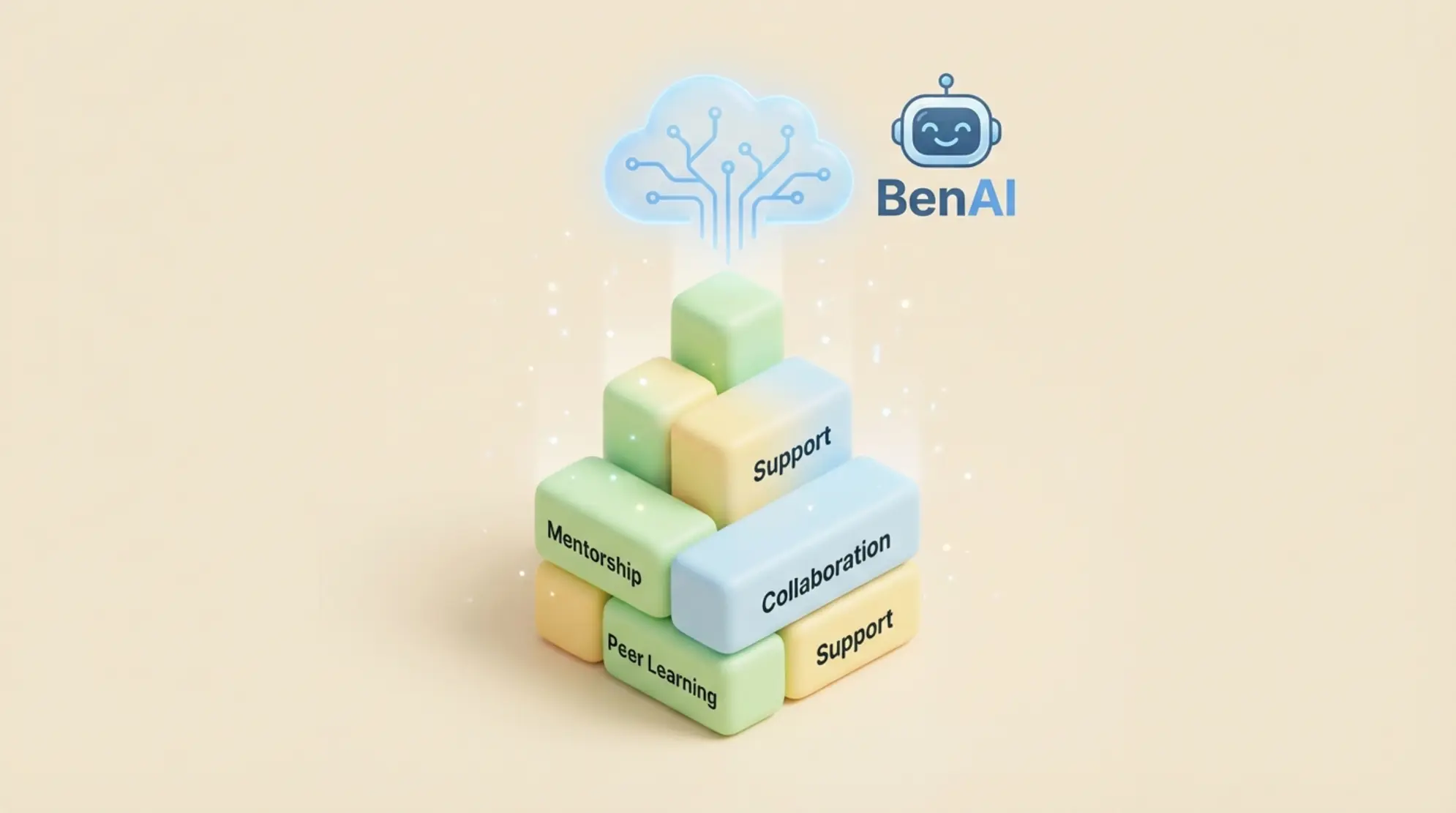The relentless pace of digital evolution has rendered traditional, manual on-page SEO increasingly unsustainable, pushing the industry toward a new frontier: Automated On-Page SEO Optimization powered by AI Agents. This shift represents a fundamental transformation in how SEO tasks are executed, moving from labor-intensive, reactive processes to proactive, intelligent, and scalable workflows.
AI agents, as specialized software entities, fundamentally enhance the relevance and crawlability of web content, ultimately driving improved search rankings and market presence for businesses. This evolution is not merely an option but a strategic imperative for any entity seeking to maintain or gain a competitive edge.
What are AI Agents for On-Page SEO, and How Do They Differ?
Unlike general AI tools or chatbots that offer conversational capabilities or content generation, AI agents for on-page SEO are purpose-built, autonomous systems engineered to analyze, optimize, and often implement specific on-page elements directly. These agents leverage Machine Learning (ML) and Natural Language Processing (NLP) to understand complex semantic relationships, user intent, and search engine guidelines. Their core purpose revolves around reducing manual workload, increasing efficiency, and analyzing vast datasets to provide actionable insights for on-page optimization.
AI agents distinguish themselves from broader AI applications, for instance, chatbots, through several key differentiators:
- Autonomous Execution: AI agents operate independently, performing tasks like meta tag generation, internal linking, and schema markup without constant human intervention.
- Contextual Understanding: They possess an advanced ability to comprehend the specific context of a webpage, a query, or an entire website architecture, ensuring optimizations are highly relevant.
- Direct Implementation: Many AI agents integrate directly with Content Management Systems (CMS) or site code, enabling them to apply changes programmatically rather than merely suggesting them.
Why Automated On-Page SEO Is No Longer Optional: Statistical Evidence
The data unequivocally demonstrates that automated on-page SEO using AI agents is no longer a futuristic concept but a present-day imperative for businesses aiming to maintain and gain a competitive edge in search rankings. According to seoprofy.com, 86% of SEO professionals have integrated AI into their strategy, indicating widespread adoption. Automation of time-consuming tasks by AI leads to a substantial 75% reduction in time spent on manual SEO tasks, as reported by seomator.com, where 75% of marketers leverage AI for such efficiencies.
Evidence suggests AI directly improves performance: a report by saffronedge.com indicates that 52% of SEO professionals report measurable performance improvement from AI in on-page SEO. Furthermore, AI usage contributes to improved content quality for 67% of marketers and boosts ranking performance by up to 49.2%, as cited by searchatlas.com. These improvements translate into tangible financial benefits, with techsavycrew.com confirming that 68% of marketers report a positive return on investment after implementing AI tools for SEO.
The market trajectory underscores this necessity, with the global AI-powered SEO market valued at $67-$72.31 billion in 2025 (techsavycrew.com), projecting significant growth. The impact on content creation is clear: 74% of new web content incorporates AI-driven optimization, and AI-generated content now comprises 13% of top-performing Google results (searchatlas.com). Enterprise investment also reflects this trend: 82% of enterprise SEO specialists plan to increase their AI investment, and 80% of retail businesses target AI-driven SEO automation by the end of 2025 (saffronedge.com), signaling a major shift towards intelligent automation.
Understanding the Mechanics: How AI Agents Execute On-Page Optimization
To truly harness the power of AI in on-page SEO, it’s essential to move beyond the abstract and understand the precise mechanics through which AI agents execute vital optimization tasks, transforming manual bottlenecks into streamlined, intelligent workflows. These agents, utilizing advanced Machine Learning (ML) and Natural Language Processing (NLP) algorithms, analyze vast amounts of data to make informed, real-time decisions that enhance a website’s search engine visibility and user experience. Each specialized function contributes to a holistic optimization strategy, ensuring content is not only crawlable and indexable but also semantically rich and highly relevant to user intent.
1. Meta Tag Generation & Optimization: Crafting Intent-Aligned Titles and Descriptions
Meta tags are often the first interaction a user has with your content on the SERP, and AI agents have revolutionized their generation and optimization by moving beyond basic keyword stuffing to craft intent-aligned, compelling snippets that maximize click-through rates. An AI agent analyzes target keywords, competitor snippets, and user search behavior to dynamically generate meta titles and descriptions that precisely adhere to character limits. This ensures optimal display on search engine results pages. The primary entity, AI agents, performs an action of optimizing meta tags by analyzing competitor performance and user intent, resulting in improved Click-Through Rates (CTR).
AI capabilities for meta tag optimization include:
- Dynamic Keyword Insertion: AI integrates high-volume, relevant keywords naturally into title and description fields, enhancing search relevance.
- Character Limit Adherence: Agents automatically ensure titles and descriptions fit within search engine display constraints, preventing truncation and preserving message integrity.
- CTR Prediction & Optimization: By analyzing historical data and competitor performance, AI predicts which meta tags will yield higher click-through rates and generates variations for A/B testing.
- Intent Alignment: AI agents decipher the nuanced intent behind user queries, crafting meta tags that directly address specific informational, navigational, or transactional needs.
- Snippet Generation: They create diverse snippets for various query types, maximizing visibility across different user search patterns.
BenAI uniquely ensures brand voice integration by learning a brand’s specific style, tone, and terminology, preventing generic outputs, and applies advanced CTR prediction models to fine-tune meta tags for maximum user engagement and conversion potential.
Content Structuring & Semantic Optimization: Building Logical Hierarchies
Beyond mere keyword integration, AI agents are pivotal in semantically optimizing content, ensuring it's not only keyword-rich but also contextually deep, well-structured, and truly authoritative, guiding users and search engines through a clear information hierarchy. AI agents act as a semantic content optimizer, building logical information hierarchies and addressing content gaps. They use Natural Language Processing (NLP) to perform entity recognition, identifying and establishing relationships between key concepts within a topic. This approach moves beyond simple keyword density, focusing on comprehensive topic coverage and topical authority.
AI functions in content structuring include:
- Topical Clustering: AI identifies related sub-topics and entities, suggesting how to group content for holistic coverage and improved topical authority.
- Entity-Based Optimization: Agents ensure that all semantically relevant entities related to the primary topic are included and properly contextualized, enhancing the content's depth and relevance.
- Content Gap Analysis: By comparing existing content against top-ranking pages and extensive knowledge graphs, AI pinpoints missing sub-topics or entities that prevent full topical authority.
- Readability Scoring: AI evaluates content for clarity, conciseness, and engagement, offering suggestions to improve flow, sentence structure, and overall user experience.
- Content Brief Generation: Agents can automatically generate comprehensive content briefs, outlining necessary headings (H1-H6), target entities, and semantic keywords for new articles.
Competitors often generate generic AI output; BenAI, by contrast, learns and adapts to a brand's unique voice and applies advanced semantic analysis for nuanced user intent differentiation, delivering content that is both optimized and authentic. This ensures a brand's message maintains its distinctiveness while achieving unparalleled semantic depth.
Internal Linking Automation: Strengthening Topical Authority and Crawlability
Internal linking is a cornerstone of site architecture and topical authority, and AI agents are transforming this often-manual task into an intelligent, scalable process that strengthens content clusters, distributes link equity effectively, and ensures superior crawlability. An AI agent identifies relevant internal linking opportunities, executing the action of building topical authority across a website. By analyzing the semantic relationship between pages, these systems propose optimal anchor text and link placement, ensuring that link equity flows strategically throughout the site. For instance, an AI agent could analyze your entire site to identify pages about "AI SEO solutions" and link them to a foundational article on creating a robust content cluster.
AI's internal linking capabilities encompass:
- Contextual Linking: AI agents automatically identify semantically relevant pages across a website, suggesting internal links that enhance user navigation and deepen topical connections.
- Link Equity Distribution: They strategically place links to ensure a balanced flow of authority throughout the site, bolstering the ranking potential of key pages.
- Automated Anchor Text Generation: AI proposes natural, keyword-rich anchor text that accurately reflects the linked page's content, improving relevance for search engines.
- Orphaned Page Prevention: Agents proactively identify pages with insufficient internal links and recommend connections, preventing valuable content from becoming isolated within the site architecture.
- Dynamic Link Integration: For dynamic content or large-scale websites, AI can integrate internal links programmatically, adapting to new content or site changes in real-time.
To scale efficiency, BenAI offers code-level implementation for complex site architectures and dynamic content, a critical advantage often missing in competitor tools. This allows for precise control over link attributes, ensuring sophisticated internal linking strategies are executed flawlessly, a key component in how we automated an SEO agency with 15 agents using intelligent automation.
Schema Markup Implementation: Enhancing Visibility with Structured Data
Schema markup, while crucial for rich results and enhanced SERP visibility, often presents a technical hurdle. AI agents streamline this by automating the generation and implementation of structured data, ensuring search engines precisely understand your content. The AI agent, as a primary entity, undertakes the implementation of schema markup, thereby enhancing visibility and eligibility for rich results. They process content to extract key entities and attributes, converting them into machine-readable JSON-LD format. This ensures that search engines gain a precise understanding of the content's context and purpose.
AI's schema functions include:
- JSON-LD Generation: AI automatically creates valid JSON-LD code for various content types, eliminating manual coding errors and speeding up implementation.
- Common Schema Type Application: Agents apply appropriate schema types, such as FAQ schema for question-and-answer sections, HowTo schema for instructional content, and Product schema for e-commerce pages.
- Validation Checks: AI systems perform real-time validation against Schema.org guidelines, ensuring the structured data is correct and eligible for rich snippets.
- Automated Updates: As content changes or new schema types emerge, AI agents can automatically update or generate new markup, keeping structured data current.
- Granular Control Options: Advanced AI solutions provide options for overriding default schema generation or applying custom rules for specific pages or content elements.
BenAI addresses the competitive gap of "in-depth exploration of specific code-level implementations" by offering granular control for schema application, allowing users to fine-tune every aspect of structured data and preventing over-optimization that could lead to penalties.
Image Optimization with AI: Balancing Performance and Accessibility
Optimized images are vital for both page speed and accessibility, yet manually managing these elements across large sites is cumbersome. AI agents automate image optimization, ensuring visual content loads quickly and is fully accessible, all while bolstering SEO. An AI agent performs the action of optimizing images, which contributes to improving page speed, enhancing accessibility, and enriching user experience. These agents analyze image content and context to generate accurate descriptive alt-text, compress file sizes without compromising quality, and convert images to modern formats like WebP.
AI's image optimization capabilities include:
- Automated Alt-Text Generation: AI analyzes the visual content of an image and generates descriptive, keyword-rich alt-text, improving accessibility for screen readers and search engine understanding.
- Intelligent Image Compression: Agents apply advanced compression algorithms to reduce file sizes, significantly improving page load times without visible loss in image quality.
- Format Conversion: AI automatically converts images to optimal formats like WebP, which offers superior compression and quality compared to older formats such as JPEG or PNG.
- Lazy Loading Implementation: AI agents can suggest or implement lazy loading techniques, ensuring images only load when they enter the user's viewport, further accelerating initial page load.
- Performance Enhancement: By reducing image file sizes and optimizing delivery, AI directly improves Core Web Vitals, a critical ranking factor for search engines.
BenAI goes beyond basic alt-text, analyzing image context to generate highly descriptive and semantically rich alt-text, which significantly improves both accessibility and search engine understanding.
Technical SEO Audit & Fixes (On-Page Focus): Proactive Site Health Management
While often associated with content, AI agents also play a crucial role in on-page technical SEO, performing continuous audits to detect and suggest fixes for issues that hinder crawlability, indexing, and overall site health, ensuring a pristine foundation for rankings. The primary entity, AI agents, performs the action of proactive technical SEO audits, resulting in improved site health and discoverability. These agents continuously monitor on-page elements, identifying problems that human auditors might miss or that would be time-consuming to find manually.
AI's auditing and fixing capabilities for on-page technical SEO include:
- Continuous Site Health Monitoring: AI agents constantly scan web pages for common technical issues, providing real-time alerts and preventing small problems from escalating.
- Automated Issue Detection: They identify broken links (internal and external), detect duplicate content instances, and flag crawlability blockers (e.g., misconfigured robots.txt directives impacting specific pages).
- Mobile-Friendliness Assessment: AI evaluates pages for mobile responsiveness, identifying elements that hinder user experience on smaller screens and suggesting optimization.
- Actionable Fix Recommendations: For each identified issue, AI provides precise, actionable suggestions for remediation, often including code-level guidance for developers.
- Crawl Budget Optimization: Agents analyze how search engine bots crawl the site and recommend adjustments to internal linking or site structure to ensure efficient crawl budget allocation.
Addressing a competitive gap regarding advanced technical SEO, BenAI offers granular capabilities in identifying and proposing fixes for subtle rendering issues and crawl budget inefficiencies, ensuring even the most complex site architectures are fully optimized.
Beyond Automation: Strategic Advantages & Overlooked Technicalities
While the efficiency gains from AI automation are undeniable, the true power of AI agents in on-page SEO lies in their capacity to deliver strategic advantages that transcend mere task execution, pushing the boundaries into predictive optimization, personalized experiences, and an indispensable human-AI synergy. This section delves into the advanced, often overlooked, technical attributes that differentiate leading AI agents, directly confronting competitive weaknesses and showcasing the profound impact on modern SEO strategy. These capabilities empower decision-makers to move beyond reactive adjustments, fostering proactive and deeply engaging on-page experiences.
Predictive On-Page Optimization: Anticipating Algorithm Shifts and Trends
Moving beyond reactive optimization, advanced AI agents empower SEO professionals to anticipate future shifts in search algorithms and user behavior, allowing for proactive adjustments to on-page elements that ensure sustained visibility and relevance. The AI agent acts as a predictive analytics engine, undertaking the action of anticipating algorithm shifts and trends. This results in proactive adjustments to on-page elements, ensuring sustained visibility. These agents analyze vast historical data, including SERP fluctuations, industry news, and broader web trends, to forecast potential algorithmic changes and emerging user intent patterns.
AI's predictive capabilities include:
- Algorithmic Foresight: AI models continuously monitor and learn from past algorithm updates, identifying patterns and indicators that suggest impending changes, allowing for pre-emptive on-page adjustments.
- Proactive Keyword Identification: Agents discover rising search queries and long-tail keywords before they become mainstream, enabling early content creation and optimization for future relevance.
- Seasonal Trend Forecasting: By analyzing historical search demand, AI accurately predicts seasonal peaks and troughs, allowing content teams to optimize landing pages and content well in advance.
- Market Trend Analysis: AI scours news, social media, and competitor activities to identify emerging industry trends, informing content strategy and ensuring on-page elements remain current and relevant.
- Future-Proofing Content: Based on predictive insights, AI can suggest modifications to content structure, entities, and linking strategies that align with anticipated future search engine priorities.
Personalized On-Page Experiences at Scale: Dynamic Content Adaptation
The future of on-page SEO isn't just about ranking; it's about delivering an individualized experience. AI agents make personalized on-page content feasible at scale, dynamically adapting elements to resonate deeply with specific user segments and their unique journeys. An AI agent acts as a dynamic content adapter, undertaking the action of personalizing on-page experiences at scale. This leads to improved user engagement and conversion rates. Leveraging machine learning, these agents analyze individual user behavior, audience segmentation data, and nuanced intent signals to tailor calls-to-action (CTAs), content variations, and even entire page layouts in real-time.
AI's personalization features include:
- Dynamic Content Delivery: AI agents can alter text, images, and offers on a webpage based on visitor demographics, referral source, browsing history, or expressed intent.
- Audience Segment Targeting: They apply advanced segmentation to identify distinct user groups and then adapt on-page elements to address the specific needs and pain points of each segment.
- Adaptive CTAs: Calls to action are dynamically adjusted to align with the user's stage in the buying journey or their inferred interest, maximizing conversion probability.
- Hyper-Personalization: AI can craft content variations that speak directly to an individual's micro-moments, ensuring extreme relevance and emotional resonance.
- AI-Driven A/B Testing: Agents continuously test different personalized content versions to identify which variations perform best for specific audience segments, optimizing conversion pathways at scale.
BenAI's advanced semantic analysis decodes subtle user intent and emotional triggers, allowing for dynamic content adaptation that prevents generic outputs and ensures emotional resonance, driving deeper engagement and more effective conversions.
The Human-AI Synergy: The Future of On-Page SEO Workflow
The most effective implementation of AI in on-page SEO isn't about replacing human strategists but augmenting their capabilities through a powerful human-AI synergy, where advanced automation handles repetitive tasks while human expertise provides crucial oversight, strategic direction, and creative nuance. This human-AI synergy is a fundamental relationship, with AI agents serving as powerful assistants to human experts, resulting in optimized workflows and superior outcomes. This collaborative model ensures that critical thinking, brand voice integrity, and ethical considerations remain at the forefront of AI-driven optimization.
Effective human-AI collaboration requires specific frameworks and best practices:
1. Define Clear Roles:
- AI Agents: Focus on data analysis, content generation (drafts, meta tags), internal linking suggestions, schema markup, and technical audits.
- Human Strategists: Provide strategic direction, set optimization goals, refine AI outputs for brand voice and quality, interpret complex data, and manage ethical considerations.
2. Establish Feedback Loops:
Regularly review AI-generated content and optimization suggestions, providing feedback to the AI system to continuously improve its learning models and output accuracy. This is a key aspect of mastering prompt engineering for AI agents and automation systems.
3. Implement Quality Control Checkpoints:
Integrate human review at critical stages of the AI workflow (e.g., before publishing AI-generated content, after bulk schema implementation) to ensure alignment with brand standards and accuracy. This ensures AI-driven quality control.
4. Prioritize Brand Voice Guardianship:
Human teams must train AI on the brand's unique tone, style, and messaging guidelines and then rigorously review AI outputs to maintain consistency and authenticity, preventing content from becoming generic.
5. Address Ethical Considerations: Humans are responsible for guiding AI to avoid bias, ensure transparency, protect data privacy, and uphold content authenticity, establishing responsible AI deployment practices.
Addressing the Gaps: What Competitors Overlooked in AI On-Page Optimization
While many discussions around AI in on-page SEO remain at a high level, true mastery lies in the granular details and capabilities often overlooked by competitors, which, when harnessed, provide a profound competitive advantage. Competitors frequently offer generic advice or lack the technical depth required for enterprise-level implementation, leaving critical gaps in their offerings. BenAI, as an advanced AI agent, fills these gaps by providing unique attributes and rare capabilities that extend beyond basic automation, offering precise control and strategic foresight.
BenAI's unique value propositions, addressing these competitive gaps, include:
- In-depth Code-Level Implementations: BenAI offers unparalleled granular control over code-level schema markup and internal linking logic, allowing for highly customized solutions that are essential for complex site architectures and bespoke content requirements. This goes beyond simple JSON-LD generation, enabling precise integration with existing frameworks.
- Robust Bulk Action Governance: For large-scale operations, BenAI provides sophisticated bulk action governance, including fail-proof rollback systems and detailed change tracking. This ensures that extensive optimizations can be deployed with confidence, knowing that any unintended impact can be reversed quickly and precisely.
- Advanced Semantic Analysis: Moving beyond basic keyword matching, BenAI's advanced semantic analysis differentiates nuanced user intent for complex and ambiguous queries. This capability ensures content is optimized for the true meaning behind user searches, preventing misinterpretations and delivering highly relevant results.
- AI's Role in Advanced Technical SEO: BenAI extends AI's application to advanced technical SEO aspects often neglected by competitors, such as log file analysis, crawl budget optimization, and diagnosing subtle rendering issues. This proactive approach ensures the foundational health of a website, enhancing crawlability and indexability at a deeper level.
Choosing Your AI Agent: Evaluation Criteria & Comparison
Navigating the burgeoning landscape of AI SEO agents can be daunting, but making an informed choice is critical for maximizing your investment. This section provides a clear framework to evaluate solutions, helping you align the right AI agent with your specific on-page optimization needs and strategic goals. Selecting an effective AI SEO agent requires careful consideration of various evaluation criteria, which directly impacts scalability, integration, and return on investment for the user. Decision-makers must look beyond surface-level features to understand the underlying mechanisms and support structures.
Key factors for selecting an AI SEO agent include:
- Features & Capabilities: Evaluate the breadth and depth of on-page SEO tasks the AI agent can automate (e.g., meta tag generation, schema, internal linking, content structuring, image optimization). Look for rare attributes like real-time algorithmic adaptation or proactive trend prediction.
- Integration & Compatibility: Determine how seamlessly the AI agent integrates with your existing Content Management System (CMS), analytics platforms (e.g., Google Search Console, Ahrefs), and other marketing tools. Direct CMS publishing capabilities are a significant advantage.
- Scalability & Performance: Assess the agent's ability to handle your website's size and future growth. Consider its processing speed, efficiency in bulk actions, and capacity for continuous optimization loops across a large number of pages.
- Human-AI Collaboration & Control: Investigate the level of human oversight required and provided. Look for features like robust governance, fail-proof rollback systems, detailed change tracking, and mechanisms for human feedback and refinement.
- Support & Community: Evaluate the availability of customer support, documentation, and a community or knowledge base. A strong support system is crucial for effective implementation and troubleshooting.
- Pricing & ROI: Compare pricing models (subscription, usage-based) against the anticipated return on investment, considering efficiency gains, ranking improvements, and increased organic traffic.
When comparing leading AI SEO agents, solutions like Surfer SEO excel in content optimization and topic clustering, leveraging its Content Editor and Topical Map. Alli AI focuses heavily on automation at scale, allowing optimization of hundreds of pages daily with direct deployment. Nightwatch provides a valuable comparison platform, listing various agents with their features and pricing, including their own NightOwl. Datagrid emphasizes solving manual SEO pain points through data-driven insights. Each tool offers distinct strengths; the ideal choice aligns with specific business needs, technical requirements, and strategic objectives.
Implementation Roadmap: Getting Started with AI On-Page Optimization
!Implementation Roadmap for AI On-Page Optimization

Embarking on automated on-page SEO optimization with AI agents requires a structured approach for seamless integration and maximum impact. A deliberate implementation roadmap minimizes risks, maximizes return on investment (ROI), and ensures the successful adoption of new technologies within existing SEO workflows. This systematic process ensures that the AI agent integrates effectively within your SEO workflow, providing tangible benefits and avoiding common pitfalls.
Implement automated on-page SEO using these six steps:
1. Conduct a Comprehensive Site Audit and Needs Assessment:
Begin by evaluating your current on-page SEO performance, identifying areas most in need of automation and improvement (e.g., outdated meta tags, unoptimized images, content gaps). Define specific goals such as increasing organic traffic by 20% or reducing manual optimization time by 50%. This assessment helps select an AI agent whose capabilities directly address your most pressing challenges.
2. Select the Right AI Agent and Define Integration Points:
Choose an AI agent that aligns with your technical infrastructure, budget, and specific feature requirements, as discussed in the evaluation criteria section. Map out how the AI agent will integrate with your existing CMS, Google Search Console, and other analytical tools. This step involves configuring API connections and ensuring data flow between systems for optimal functionality.
3. Start with a Pilot Project: Test and Refine:
Do not deploy AI-driven optimizations across your entire site immediately. Select a small, representative segment of your website (e.g., 5-10 pages or a specific content cluster) for an initial pilot project. Monitor the AI's performance closely, analyzing ranking changes, organic traffic, user engagement metrics, and time savings. This iterative process allows for fine-tuning the AI's parameters and outputs before a broader rollout.
4. Establish Human-AI Collaboration Workflows:
Define clear roles and responsibilities for your human SEO team and the AI agent. Humans should focus on strategy, content refinement, quality control, and interpreting complex insights, while the AI handles repetitive, data-intensive tasks. Implement feedback mechanisms where human experts can review and adjust AI-generated content or optimization suggestions, which is crucial for mastering prompt engineering for AI agents and automation systems.
5. Scale Up and Continuously Monitor Performance:
Once the pilot project demonstrates positive results and stable performance, gradually expand the AI agent's scope to more pages or content sections. Establish continuous monitoring processes for key performance indicators (KPIs) like organic rankings, click-through rates, conversion rates, and Core Web Vitals. Regularly review detailed change tracking and utilize fail-proof rollback systems to address any unforeseen issues promptly.
6. Train Teams and Adapt to Evolving Trends:
Provide ongoing training for your SEO and content teams on how to effectively interact with the AI agent, interpret its insights, and leverage its capabilities. Stay informed about the latest AI advancements and search engine algorithm updates, adapting your AI strategy as the digital landscape evolves. This ensures your AI-driven optimization remains cutting-edge and compliant.
BenAI: The Intelligent Partner for On-Page SEO Mastery
While the path to truly automated and intelligent on-page SEO is clear, finding a partner that delivers on these advanced capabilities is paramount. BenAI stands at the forefront of this revolution, offering a sophisticated AI agent solution meticulously engineered to address every challenge and capitalize on every opportunity in modern on-page optimization. BenAI, a specialized AI agent, serves as an intelligent partner for on-page SEO, offering comprehensive solutions for businesses. It provides an unparalleled blend of automation, precision, and strategic oversight, moving beyond the generic offerings of competitors.
BenAI's distinct advantages include:
- Unparalleled Granular Control: BenAI offers unparalleled granular control over code-level schema and internal linking logic, a feature often overlooked by competitors. This ensures precise, customized optimization for even the most complex site architectures.
- Brand Voice Integration: With BenAI, your brand's unique voice is learned and protected during meta tag generation and content structuring, preventing generic outputs and maintaining authenticity across all optimizations.
- Robust Governance & Rollbacks: BenAI incorporates robust governance with detailed change tracking and fail-proof rollback systems, providing confidence for large-scale deployments and allowing for swift correction of any unintended outcomes.
- Advanced Semantic & Predictive Analytics: Beyond basic keyword matching, BenAI's advanced semantic analysis differentiates nuanced user intent and emotional triggers, enabling dynamic content adaptation and highly relevant personalization. It also offers robust predictive trend forecasting, allowing for proactive adjustments to on-page strategies before market shifts occur.
- Comprehensive Technical SEO: BenAI goes beyond basic audits by identifying and proposing fixes for subtle rendering issues and crawl budget inefficiencies, ensuring a pristine technical foundation for your rankings.
- Integrated Actionable Insights: BenAI provides not just data, but actionable "what to do next" instructions, directly integrating insights with implementation capabilities for a seamless workflow.
BenAI empowers businesses to achieve superior rankings, operational efficiency, and a truly optimized online presence, transforming on-page SEO into a strategic asset. Our AI SEO solutions are designed to redefine your digital strategy.
FAQs:
Can AI agents fully replace human SEO specialists?
No, AI agents cannot fully replace human SEO specialists. Instead, they serve as powerful augmentation tools, automating repetitive and data-intensive tasks. Human expertise remains crucial for strategic thinking, creative content development, quality control, understanding nuanced user intent, and adapting to unforeseen algorithmic changes. BenAI empowers human teams by handling the operational burden, freeing up specialists for higher-level strategy.
How accurate is AI-generated content for SEO?
The accuracy of AI-generated content for SEO has significantly improved, with AI now capable of producing highly relevant and semantically optimized output. However, potential for "hallucinations" or inaccuracies still exists, necessitating human review for factual correctness and brand alignment. BenAI incorporates advanced validation checks and integrates seamless human feedback loops to maintain the highest content accuracy, as detailed in our guide on AI-driven quality control.
What are the ethical considerations for using AI in on-page SEO?
Ethical considerations for AI in on-page SEO include ensuring transparency about AI's role, mitigating algorithmic bias, protecting data privacy, and maintaining content authenticity. Responsible deployment prioritizes user value over purely algorithmic manipulation. BenAI is designed with ethical guidelines, offering clear audit trails and options for content disclosure to promote transparency and trust, further explored in our piece on AI-powered content marketing strategy.
How do I measure the ROI of AI-driven on-page optimization?
Measuring ROI involves tracking metrics such as reduced manual hours, improved search engine rankings, increased organic traffic, enhanced click-through rates, and ultimately, higher conversion rates. According to techsavycrew.com, 68% of marketers confirm a positive return on investment after implementing AI tools for SEO, indicating a clear measurable benefit. BenAI provides integrated analytics dashboards to track these Key Performance Indicators (KPIs), offering clear insights into performance and efficiency gains.
What are the biggest risks of relying too much on AI for SEO?
Over-reliance on AI carries risks, including a potential loss of human strategic oversight, the generation of generic or unauthentic content, and susceptibility to algorithmic penalties if AI misinterprets guidelines. It can also lead to reduced adaptability in novel search scenarios. BenAI mitigates these risks through its emphasis on human-AI synergy, robust quality control, and built-in guardrails to prevent over-optimization and maintain brand integrity.
Join Our Growing AI Business Community
Get access to our AI Automations templates, 1:1 Tech support, 1:1 Solution Engineers, Step-by-step breakdowns and a community of forward-thinking business owners.
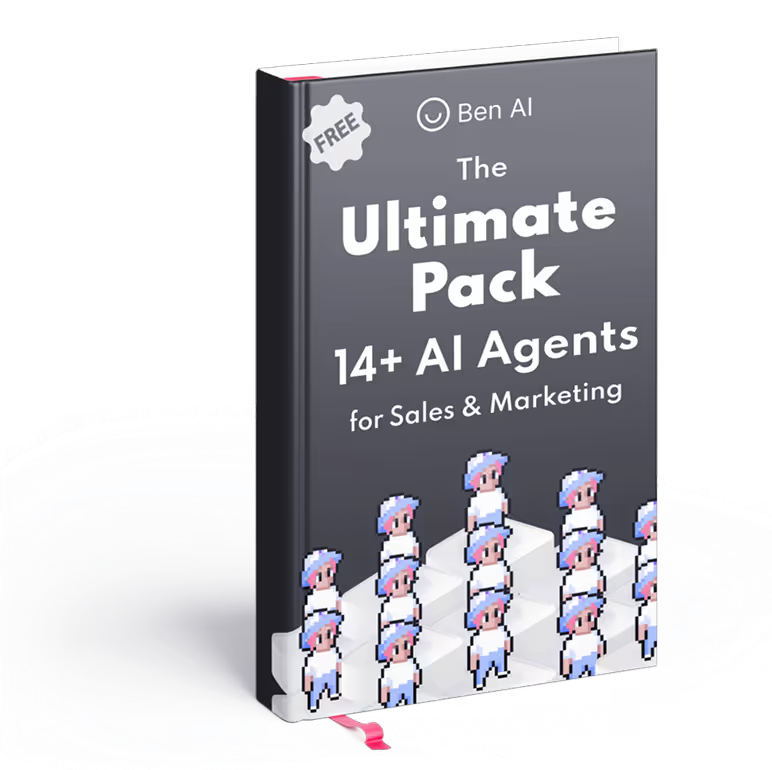
Latest Blogs
Explore our latest blog posts and insights.

